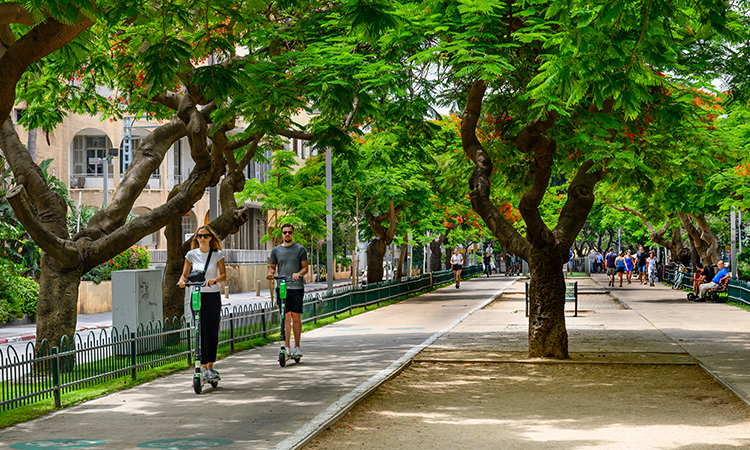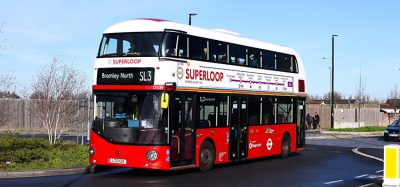Israel’s NRSA works with scooter operators to improve safety
- Like
- Digg
- Del
- Tumblr
- VKontakte
- Buffer
- Love This
- Odnoklassniki
- Meneame
- Blogger
- Amazon
- Yahoo Mail
- Gmail
- AOL
- Newsvine
- HackerNews
- Evernote
- MySpace
- Mail.ru
- Viadeo
- Line
- Comments
- Yummly
- SMS
- Viber
- Telegram
- Subscribe
- Skype
- Facebook Messenger
- Kakao
- LiveJournal
- Yammer
- Edgar
- Fintel
- Mix
- Instapaper
- Copy Link
Posted: 6 January 2021 | Joshua Minchin - Intelligent Transport | No comments yet
It’s hoped that the new measures brought in as a result of the National Road Safety Authority’s efforts can be rolled out across cities worldwide.


Lime, Bird, and Wind all operate scooters in Tel Aviv.
Scooter operators in the Israeli city of Tel Aviv have responded to requests from Israel’s National Road Safety Authority (NRSA) to improve safety restrictions on their apps, in a move which could improve the safety of scooters across the world.
Recent years have seen a significant increase in the use of micromobility vehicles in Tel Aviv, particularly electric scooters. In the Greater Tel Aviv area, three scooter sharing services – Lime, Wind, and Bird – operate 7,500 electric scooters.
The Tel Aviv Municipality renews the operators’ licenses annually under certain conditions and restrictions, such as mandatory helmets for each rider beginning in January 2021. The service operators restrict scooter use to riders aged 18 and older, though the law allows users aged 16 and older to ride scooters.
Israel’s National Road Safety Authority (NRSA), in collaboration with the Tel Aviv Municipality, has been studying ways to improve the safety of micromobility vehicle users. Over the past year, the NRSA conducted an in-depth investigation of the services’ applications and the operators’ terms of service, with emphasis on the ease with which minors prohibited from riding electric scooters were able to bypass the terms and receive full access to the service. The NRSA says the investigation found ways to improve the service, from the preliminary registration stage, to the process of unlocking the scooters, to the final stage of parking and locking the scooters at the rider’s destination.
The NRSA sent letters to the three operators describing the outstanding issues, with a request to remedy these faults so as to prevent the unlawful use of scooter-sharing services, which endangers both the underage riders and other road users.
The service operators responded to the NRSA’s request. In collaboration with their parent companies, they introduced changes into their applications, including tightening restrictions during registration, adding automatised procedures, and updating the terms of service.
Lime, Wind, and Bird all operate scooter sharing schemes in multiple countries, so there is a genuine possibility that the changes brought about by the NRSA’s investigation could be rolled out across the world. Many cities, including Paris and Berlin, have reported problems with scooter safety on their roads, as well as issues around the proper parking of the vehicles. It’s possible that local authorities will have to take the lead in bringing about change to the way operators rent out their scooters, in order to improve both the safety and security of this still very new transport mode.
Related topics
Fleet Management & Maintenance, Mobility Services, On-Demand Transport, Passenger Experience, Security & Crime, Vehicle & Passenger Safety
Related modes
Bikes & Scooters
Related cities
Israel
Related organisations
Bird, Lime, National Road Safety Authority (Israel), Wind








